#Treaty of Lisbon
Text

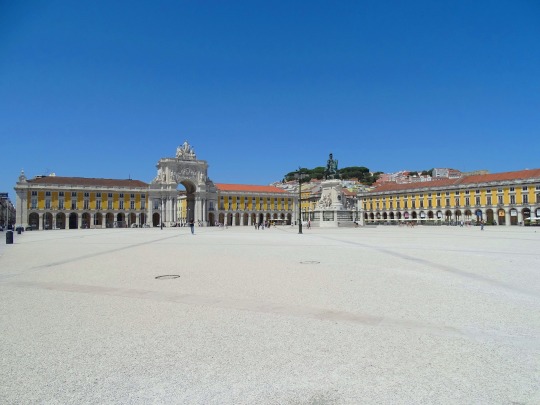

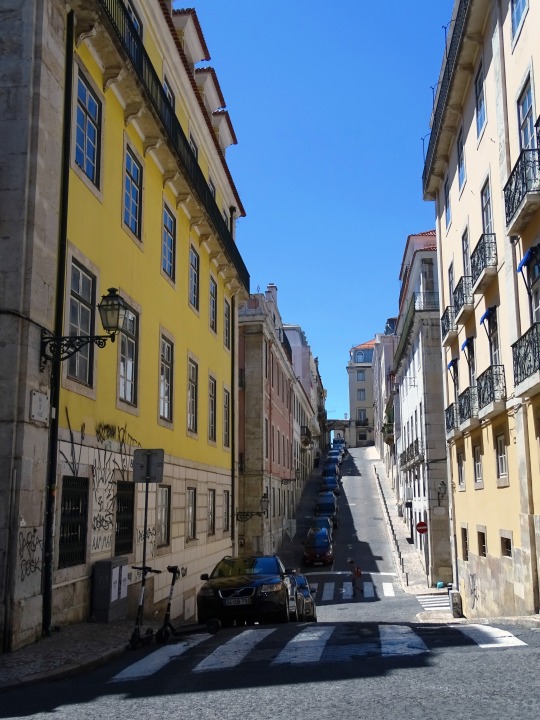

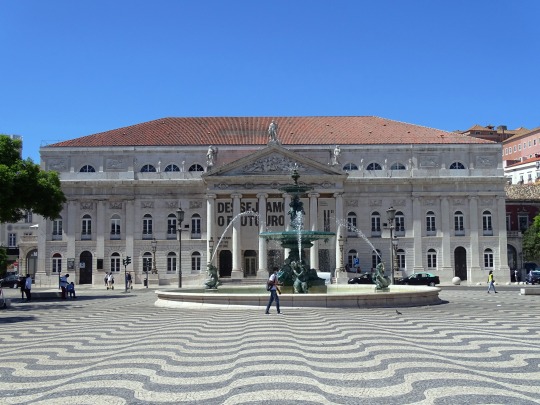





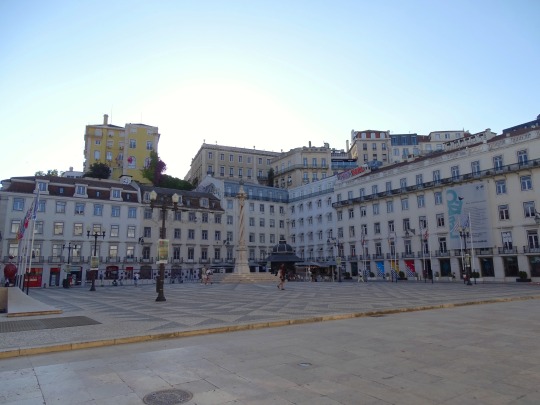
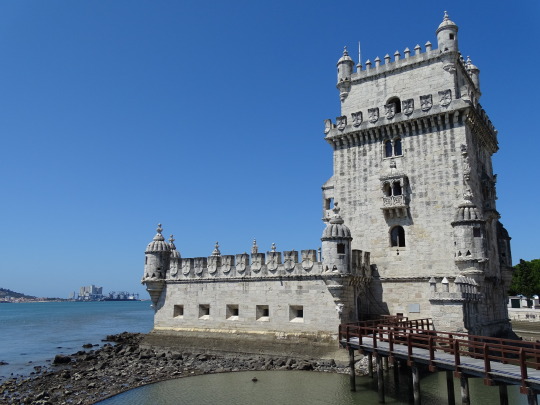


The Treaty of Lisbon defined the boundaries between Spain and Portugal and abolished the Couto Misto microstate on September 29, 1864.
#Rua Augusta Arch#Praça do Comércio#29 September 1864#Lisbon#architecture#cityscape#Portugal#Treaty of Lisbon#Lisboa#summer 2021#original photography#Rossio#São Jorge Castle#Lisbon Cathedral#Belém Tower#Tower of Saint Vincent#Praça do Município#City Hall#Paços do Concelho de Lisboa#streets scene#tourist attraction#landmark#anniversary#Spanish history#Portugese history
8 notes
·
View notes
Text
So, an update on those two referendums Ireland had yesterday:
Early counts indicate that both Amendments have been defeated, quite badly.
The general opinion seems to be that this is another Nice/Lisbon situation: the Government failed to adequately explain the effects of the proposed changes, and the Irish public refused to vote for something they didn't understand.
Like the Nice and Lisbon Treaties, this will likely be rerun with more concrete explanation, probably with changes to the vague language of the Amendments, and that will likely pass then.
19 notes
·
View notes
Text

Albert Gregorius - Portrait of King Joao VI - 1826
Dom John VI (Portuguese: João VI; 13 May 1767 – 10 March 1826), nicknamed "the Clement", was King of the United Kingdom of Portugal, Brazil and the Algarves from 1816 to 1825. Although the United Kingdom of Portugal ceased to exist de facto beginning in 1822, he remained its monarch de jure between 1822 and 1825. After the recognition of the independence of Brazil under the Treaty of Rio de Janeiro of 1825, he continued as King of Portugal until his death in 1826. Under the same treaty, he also became titular Emperor of Brazil for life, while his son, Emperor Pedro I, was both de facto and de jure the monarch of the newly independent country.
John VI was born in Lisbon in 1767 during the reign of his maternal grandfather, King Dom Joseph I of Portugal. He was the second son of the Princess of Brazil and Infante Peter of Portugal, who later became Queen Dona Maria I and King Dom Peter III. John became heir to the throne when his older brother, Prince José, died of smallpox in 1788 at the age of 27. Before his accession to the Portuguese throne, John bore the titles Duke of Braganza, Duke of Beja, and Prince of Brazil. From 1799, he served as prince regent due to the mental illness of his mother. In 1816, he succeeded his mother as monarch of the Portuguese Empire, with no real change in his authority, since he already possessed absolute powers as regent.
One of the last representatives of absolute monarchy in Europe, John VI lived during a turbulent period; his reign never saw a lasting peace. Throughout his period of rule, major powers, such as Spain, France and Great Britain, continually intervened in Portuguese affairs. Forced to flee across the Atlantic Ocean to Brazil when troops of the Emperor Napoleon I invaded Portugal, he found himself faced there with liberal revolts; he was compelled to return to Europe amid new conflicts. His marriage was no less conflictual, as his wife Carlota Joaquina of Spain repeatedly conspired against her husband in favor of personal interests or those of her native Spain.
John lost Brazil when his son Pedro declared independence, and his other son Miguel (later Miguel I of Portugal) led a rebellion that sought to depose him. According to recent scholarly research, his death may well have been caused by arsenic poisoning. Notwithstanding these tribulations John left a lasting mark, especially in Brazil, where he helped to create numerous institutions and services that laid a foundation for national autonomy, and many historians consider him to be a true mastermind of the modern Brazilian state. John's contemporaries viewed him as a kind and benevolent king, although later generations of Portuguese and Brazilians have made him the subject of frequent caricature.
Albert Jacob Frans Gregorius, or Albert Jacques François Grégorius (26 October 1774, Bruges - 25 February 1853, Bruges) was a Flemish-Belgian portrait painter and Director of the art academy in Bruges.
15 notes
·
View notes
Text
Day 2: 1386
Engport | G | 4.2k
@engportevents
.
.
November came with dreadful weather, and Portugal would much rather have stayed in Lisbon beside a warm fire than ride all the way to the Galician border in the cold, in the rain and in the gusts of freezing wind. But a treaty was a treaty, and he was bound to honor it.
On the other side of the bridge, under red, gold and blue embroidered banners that presumptuously also included the Castilian coat of arms, stood the English delegation mounted on their horses, dripping wet and shivering, some looking green with sickness. He stretched on his horse to try to look among them, searching for a familiar face, blond hair darkened with water plastered to a youthful face and deep forest green eyes.
The river Mouro ran fast below them, and the Duke of Lancaster, possibly the future King of Castile if the war went their way, had the musicians start playing once he spotted the Portuguese delegation coming on the other side. The sound of fifes and drums was drowned and muffled under the curtain of rain, carried away by the freezing wind, but Portugal’s new King responded in kind, their white banners carrying their coat of arms in form of a shield standing tall and proud above them, and their King riding at the front, greeting the English Duke with an amicable shake of hands.
“Come, come, we have much to discuss,” the Duke said in faulty, heavy-accented Castilian, making sure to show the extent of his efforts in his endeavor to become the future King of Castile.
Portugal looked around to see if he could spot that one face he was looking for, but as they were escorted across the Galician border along the Minho River towards the town of Ourense, he failed to see him among the English nobles and knights.
-
It was only after they had settled in, their horses taken to the temporary stables set up by the English when they first occupied the city, and their immediate needs seen to, that he asked after his friend’s whereabouts.
“Little King Arthur will not be joining us on this enterprise?” his new King asked him in private after overhearing Portugal’s inquiry and watching with him as the servant Portugal had stopped to ask had shaken his head and scurried away as fast as their feet could take him, making Portugal huff out in annoyance and frustration.
Portugal did a double take at the man beside him, frowning. “Why call him—no, I mean, yes, your grace.” Portugal shook his head, trying to sort out his own thoughts. “In his last letter he said he would come. I don’t understand why he’s not here.”
The King hummed thoughtfully. “That is indeed a mystery.” Then he clapped him amicably on the shoulder. “Perhaps there is no one more capable of solving it than you, Gabriel,” he added with a wink. “But make sure not to do anything that could upset our hosts, hm? The ink is still wet on our treaty with the English, and I’d hate for dear Philippa to have to search for another husband.”
Portugal frowned at his King’s back as he walked away, going down the corridor towards their assigned quarters and leaving Portugal all alone in the cold stone corridors.
All alone with thoughts of mischief brewing on the back of his mind.
-
As night darkened outside, the shadows inside the stone corridors of the fortress grew longer, cloaking his presence as Portugal silently made his way into the English assigned quarters, coasting the walls and keeping the hood of his cloak over his face to conceal his presence. He followed the servant from earlier with cunning diligence, watching from the shadows as he went down to the kitchens to retrieve a pot of steaming water, then up two flights of stairs, careful not to make a sound as the young man turned a corner and fitted a key that he pulled from under his vests and into the lock of an unguarded room.
Portugal held his breath as he waited. If the servant was perhaps a little careless, he could steal the key once he passed by him on his way back to the stairs.
But as fortune would have it, there was no need. As the servant came out, his pot now empty of water, he let it fall out of his arms and the thing rolled noisily away, clunking and banging, providing a perfect cover for Portugal to slip inside the room while the young man swore under his breath and stomped his way to retrieve it.
The good news, he discovered once inside, was that the room truly was England’s as he had suspected and that his friend had indeed come to wage war following his Duke’s claim to the Castilian throne.
The bad news was that England currently laid on his bed very much dead.
-
England’s complexion was even paler than the time he died of the plague some years back. He was cold to the touch too, so Portugal estimated he must have been like this for quite some time. But his chest hadn’t yet caved in, nor his eyes seemed sunken when Portugal peeled back an eyelid to check. Perhaps in a day or two he would be back to his usual self, and, while a bother, it wasn’t the end of the world.
“You have the worst timing, my friend,” he told him in all seriousness, hands on his hips and lips crisped as he looked at England’s dead body on the bed.
Portugal, however, didn’t have much time to dwell on his mixed fortune, because the servant came back and he had to quickly dive under England’s bed, clamping a hand over his mouth to quieten his breathing.
“Arthur?” the man came into the room asking, bringing a candle with him and coming closer to the bed to inspect the body. “Did you say something? I could swear I heard something coming from inside the room, have God awaken you yet?”
The servant came closer still and the tips of his pointy shoes stepped on the end of Portugal’s cloak under the bed. When he tried to squirm away, he accidentally jerked his head back and smacked it up on the wooden frame of the bed, groaning on reflex.
“I knew it! You are awake!” the man exclaimed from above, happy and relieved, “I knew St. George would answer my prayers! I need to tell the Duke, this is such happy news!”
Footsteps hurried out of the room and Portugal stood frozen in place.
Fuck.
-
“I swear I heard him, he made a sound as if awakening!”
“Don’t be daft, Tenney, the boy has been out cold for days, what you probably heard was gas passing through his body.”
“Don’t blaspheme, Elric, I’m telling you what I saw!”
“You don’t know what you saw, with that weak candle of yours you could’ve seen the devil on that bed and wouldn’t have known the difference.”
“I heard him, Elric, I did! I saw him shift too, jump from his bed as if his soul was trying to come back to his body. I’m telling you!”
“Well, if that’s true then we have to report to the Duke and his knights, they’ll want to set a meeting with the Castilian commander to launch a formal declaration of war. Now that the Portuguese King has brought in his reinforcements we could finally be seeing some action after all this bloody waiting.”
The door opened and Portugal gathered the ends of his cloak away from the incoming light and voices. It would have been really helpful to know what they were saying, but England hadn’t had the chance to teach him his language yet.
Two pairs of long pointy shoes stood at the edge of his vision.
“Well, then?”
“I’m telling you what I saw, Elric, the boy was alive.”
“He looks dead to me.”
The two servants continued to quibble above him and one of them began to impatiently tap his foot, raising dust from the floor and sending it directly into Portugal’s face.
He pressed his eyes tightly shut, clamped his hand harder over his mouth and nose, but it was no use. As hard as he tried, the muffled sound of a sneeze still managed to squeeze through and the squabbling above him immediately stopped.
“Did you see that?”
“I…”
“I told you I wasn’t lying!”
“Jesus Christ on the cross, Tenney, shut the fuck up! Let me think!”
Portugal held his breath, going red in the face as he did.
“Arthur, is that really you? Are you back from the realm of the dead yet? Give us a sign if it’s really you.”
Seeing as it was impossible for him to hold his breath for much longer, Portugal was forced to let go of his mouth and nose with a distressed sound and gulp down much needed air.
“There! Did you see it this time! I definitely saw him take breath!”
“Calm yourself down, Tenney, Jesus. I didn’t see anything, I just heard some weird noise.”
“You asked him to give you a sign and he did!”
“He didn’t give me shit, bloke’s still dead, Tenney!”
The pair of feet started prancing around and Portugal’s heart was racing, mind frantically searching for a way out, wishing for a window when the two wouldn’t be looking so he could make a run for the door.
“Arthur, if you’re really back, do you want us to call the Duke?”
Portugal hated himself. He hated his life and every decision he made that got him to this place. But most of all, in that precise, exact moment, he hated England with all his might.
“Mmhm,” he intoned weakly, feeling incredibly stupid and supremely desperate, having no idea what he had just agreed to just really wanting to get rid of the two young men so he could jump out of the fucking window and be done with all his problems.
“Well, fuck me, little Arthur truly is back.”
“I told you!”
“We need to make arrangements right away. Tenney, you go to the stables and tell them we need a messenger on the ready, I need to inform the Duke. He’ll probably want to send for the Castilians right away.”
Portugal watched as the two hurried out of the room to fulfill their tasks.
After they were gone, leaving the door unlocked on their wake, he emerged from under the bed wide-eyed, hair in knots and with dust all over his face.
England was still very pale and very much dead when he looked at him.
“You owe me one for the rest of your life after this.”
-
“So, Gabriel,” his King started, welcoming him as Portugal entered his room the next morning with unsure feet, looking first at the guards posted by his King’s small meal table and coming gingerly closer to take a seat beside him. “The Duke of Lancaster informs me little King Arthur made a miraculous recovery from his illness during the night and that they have already sent for the Castilians for a meeting tomorrow. That is fortunate, wouldn’t you say so?”
Portugal shrugged, reaching with an unconfident hand for a piece of bread and not daring to raise his eyes from the table.
“I suppose the mystery of your friend’s whereabouts is finally solved then, right?”
“I guess,” Portugal mumbled, nibbling on the bread like a guilty little field mouse.
“And you wouldn’t have anything to do with any of it, right?”
He swallowed down a bite that went scratching down his throat, coughing and choking. His King gave him little pats on his back and served him a cup of water.
“Hey, now, don’t go swallowing without chewing,” the King admonished lightly. “I’m only asking because my future father-in-law asked for our presence this afternoon to go over our joint strategy against the Castilians. I don’t want any surprises.”
“Surprises?” Portugal croaked, voice cracking high at the last syllable, finally looking up to meet his King’s frown and confused stare, squinting his eyes back at him.
He stared back, forcing himself not to blink.
“You’re not hiding anything from me, are you, Gabriel?”
“… No,” he lied, and he immediately knew that the King knew that he knew that he was lying because his eyes squinted further into very thin slits.
“Well, we’ll see how today’s meeting goes,” he conceded, sitting back on his chair. “You may go get dressed.”
Portugal couldn’t think of any other time when he got up faster from a table, shoving the piece of bread in his hand into his mouth and looking down at his own two feet as he felt himself blushing violently, hurrying without running out of the room feeling the King’s and his guards’ eyes on him the entire way out.
-
“Come on, please wake up.”
England’s dead face stared back at him, unmoving and unspeaking. Portugal ran a frustrated hand over his head. He had tried everything he could think of. Splashed him with cold water, pinched his arms, peeled his eyes open and blew into them, put food in his mouth, put water in his mouth, pinched his cheeks until they were rosy pink, sat him up on the bed and held his arms up above his head.
All he accomplished was to feel absolutely ridiculous. And kind of a jerk to his friend.
“Come on, come on, come on,” he chanted, moving England’s hands in his in a rolling motion to see if it could warm up his blood. But it only managed to jolt his body until England’s head lolled down and his chin rested on his chest. Portugal growled in frustration and all but dumped his arms down to fall crossed over his lap, his spine slumping forward until Portugal caught him with a hand on his shoulder.
The door opened behind him and Portugal looked back wide-eye at the servant coming in.
It was a girl holding a bucket of water against her hip. She looked just as surprise to see him there as Portugal was.
“Uhm,” she started, looking between him and England, her lips twisted to the side. “They ordered me to give him a scrub,” she said, but Portugal didn’t speak English, so he just frowned at her. She frowned back. “Are you here to help me undress him?”
“Que?”
“You can hold him up while I get his shirt, then,” she directed, coming in and setting her bucket down. “And then we’ll do the pants.”
Portugal watched frozen into silence as the girl proceeded to peel England off his clothes in front of him, baring his naked chest where sparse tufts of soft blond hair has began growing around his nipples and navel. He felt bright hot red rise from his neck and flood his cheeks, eyes falling down to where the girl was undoing the strings on England’s pants with quick efficiency and pulling them off in two, three rough jerks, revealing pale naked legs and—
Portugal looked up at the ceiling and bit his lips.
He dared not to look down until the girl said something else in her language that probably meant she was done.
-
“He’s quite the heavy sleeper, isn’t he? Slept all through the Duke’s speech.”
Portugal gave a forced smile to the noble knight in front of him. England’s inert head laid slumped down over his chest in his seat beside him, the fresh clothes they had put on him and the pinches Portugal had given his cheeks gave him a livelier look, but if anyone dared to look any closer it would be obvious that he was very much still dead.
“It takes a heavy toll on the body to, ahm, recover from such illness,” he lied through very teeth, but the noble knight winced at the mention of illness and made a face of disgust.
“He’s not… contagious, is he?”
That was an opening Portugal hadn’t expected, but he one that he was quick to seize.
“He could be, better not come too close. I of course can because I have already recovered from such illness and am therefore immune.”
The noble knight raised his eyebrows and nodded in partial understanding. “I see,” he said, but he didn’t look like he saw anything. Portugal was glad when he went away after that.
“And what illness would that be?” his King whispered to him as he leaned down to speak against his ear, and Portugal felt his spine go rigid.
“It’s, ahm… A very serious one,” he said stiffly, cold sweat gathering on the back of his neck. “It’s also very new.”
“That sounds very dangerous,” his King pulled back to say a little louder, so his voice could reach the Duke nearby. “Perhaps, Arthur could be excused from negotiations with the Castilians tomorrow to continue his recovery until he is fit for the upcoming battles.”
Portugal’s eyes rose to look at his King, and in that instant he felt so grateful and relieved he almost cried.
“Nonsense!” the Duke of Lancaster exclaimed coming closer, he clapped England hard on his shoulder and his body jolted, eyelids trembling. “All this boy needs is a cup of strong ale and a good night’s sleep, and he’ll be brand new. I want the Castilians to fear our combined strength.”
England head lolled lifelessly onto Portugal’s shoulder and Portugal forced a smile at the English Duke.
“Ah, friendship! There’s nothing quite like it in this world, wouldn’t you agree, Master of Aviz?”
“Yes,” his King was quick to join in, looking at the distressed call for help written in Portugal’s eyes and putting a hand on the English Duke’s shoulder. “Speaking of which, your grace, do you perhaps have a moment to tell me news of Philippa?”
“Oh, yes, your future bride!” the Duke exclaimed heartily, letting himself be led away. “In her last letter she spoke of reading the latest writings of Chaucer, I must have them translated for you, João, so the two of you will have something to talk about.”
Portugal let out air he hadn’t known he was holding as he watched the two walk away.
He glanced at England’s head on his shoulder, his lips smashed against the fabric of his clothes and hair askew. Gently, he straightened him up as best he could, but didn’t move him away. It felt quite nice actually, despite England being dead.
-
How his King roped the English into allowing him to bring England into his chambers for the night was something of a feat. After telling them they possessed a special kind of medicine that had proven effective against that kind of illness but that it could only be administered at night and in the early hours of morning, so it would be more convenient if they just let Arthur sleep in the same chamber as Gabriel, the English had more or less just looked at one another and shrugged, letting Portugal drag England’s unmoving body with his arm slung across Portugal’s shoulder and all of his weight propped against his side all the way back to his room.
He was sweating by the time he got him into his bed, arranging all of England’s limbs on the mattress before unlacing his shoes.
“I’m not undressing you ever again,” he swore to his friend’s dead body, fighting flashes of memories and the creeping blush climbing up his cheeks. Instead, he covered him with a blanket and placed a chair beside him, where he then sat down and crossed his arms, glaring at England on the bed.
“You can’t ever, ever, say I never do anything for you after this. Ever.”
England didn’t respond.
Portugal huffed and slumped down on himself, watching over him through the night.
-
He dreamt of a battlefield. Castile yielding his sword on top of a horse one on side, himself and England on the other. England laid in full armor on the ground, dead and unmoving, while his own armor was missing, he had forgotten to put it on that morning before battle and he stood now naked with no weapon while Castile charged at him.
Have you tried giving him honey?, France asked, sitting on top of a boulder and inspecting his nails. Honey always works.
Portugal opened his mouth to retort, but when he turned around Castile was right in front of him and Portugal was naked, and then—
“Not my balls!” he woke up exclaiming, hands flying in front of him to secure his lap.
He blinked at the morning light shinning through the window, blinking down at his hands cupping his prized possessions, blinking at England dead on the bed.
And then jumped upright and ran downstairs to grab some honey.
-
By the time the Castilian delegation was announced, England’s chest had already began rising and falling slowly. Too slowly for him to be awake yet, but Portugal had hope. The Duke of Lancaster had been adamant that Arthur be present for the meeting, and so Portugal held him more or less upright beside him in one corner of the room, one arm firmly wound around the back of his waist, giving his King a shaky thumbs up that the man received with a deep frown before righting himself and facing the upcoming enemy delegation.
Castile came in beside his commander in all of his tall, broad-shoulder, dark-haired and olive-eyed glory, glancing around the room until he spotted Portugal in the corner, squinting at his closeness with England with a snarl. His nose was still very much broken and bent from when Portugal had crushed it during Aljubarrota the year before.
He couldn’t fool Castile like he could the others, sooner or later he would see through Portugal’s deception. If he looked any closer, he would know.
His brother glared at him all throughout negotiations, not even paying attention to what was being said, treating the Duke of Lancaster’s claim as something so easily dismissible he wouldn’t even look the man in the eye to acknowledge it. The Duke in turn took that with great offense, conversation growing more stilted and tense as it went on.
When it was finally done, Portugal could feel the electricity in the air as the Castilians rose and proceeded out of the room with a promise of war having been sealed and settled in no uncertain terms. Castile, however, parted from his knights and commander to make a beeline for him, and suddenly Portugal felt very naked like in his dream. His knees locked to keep England from falling off, with no real weapon on him to protect himself if Castile tried something. Out the corner of his eye, he saw his King get up from the table a moment too late, eying them with concern, but then Castile was right in front of him, grabbing Portugal by the front of his tunic, breathing down hard and nostrils flaring.
“Unhand him now.”
Castile turned first, but Portugal felt his heart skipping a beat at hearing England’s first words in days, his voice hoarse and scratchy, and he looked to the side with a flood of relief to find his friend with his eyes very much open and alive, a hand on the hilt of his sword on his hip, weight better distributed on his feet under him.
The Castilian commander called his brother back and Castile’s fingers reluctantly uncurled from Portugal’s clothes. His brother still gave them one last glare over his shoulder, but then he was gone without a word, leaving the audience chamber with heavy steps.
After the doors closed behind his delegation, Portugal felt so relieved it was all over his knees almost gave out from under him, but a firm hand on his hip prevented him from falling flat on his face.
“Don’t go falling on me, Port,” England said, and Portugal felt ridiculously light-headed and so genuinely happy to hear his stupid voice he felt like he could kiss him right on the lips in front of the King, the Duke and everyone else. But then he caught himself, coughing into his fist and quickly untangling himself from his friend, feeling his neck and cheeks and ears turn pink with embarrassment.
“Yeah, no, yeah,” he mumbled, forcing out a nervous chuckle, running a hand down his arm. “I wouldn’t want to do that.”
From the main table, he heard someone clearing his throat into their fist. “Well, that was productive,” his King said, followed by various murmured assents and a conversation on what the Castilians could do now that the allied Anglo-Portuguese forces had presented their claims and intentions, and how they could fortify their position against a possible incoming attack, his King skillfully averting their attentions from the fumbling teenagers in the corner.
England blinked at the scene and then at himself, patting his own chest and checking his own breathing with a finger under his nose.
“Hey, Port,” England called quietly, and Portugal mm’d in question, watching him scratch the back of his neck in thought, frowning down at his own body. “Do you care to explain why—?”
He held a hand in front of England’s face and made him stop talking, feeling all of his muscles tired and his mind exhausted from the accumulated stress of the last two days.
“Later. I promise. I’ll tell you everything later. All I’m going to say now is that you owe me big time for dying on me like that.”
England’s face split into a broad grin and he laughed.
Portugal felt so damn happy at the sound of it he almost kissed him again.
.
Notes: On November, 1386, seven months after England and Portugal signed the Anglo-Portuguese Treaty, John of Gaunt, the Duke of Lancaster, went to Galicia with the intent to wage war against the Castilians and claim the Castilian throne on behalf of his wife’s (Constance of Castile) inheritance. He was aided by his future son-in-law, the Portuguese King João I. Despite this, their venture was unsuccessful.
#engportweekevent#engportweek#engport#hws england#hws portugal#historical hetalia#hetalia#fics that could easily be 50k if I dedicated more than half a day to it#make no mistake despite the serious beginning this is very much a weekend at bernie's spoof#a wild fic appears
36 notes
·
View notes
Note
“With the Commonwealth Realms, I expect Charles to fulfil his role as their Head of State regardless of which government is in power.”
Until John Major signed, Maastricht treaty in the mid 1990’s we had anchor butter and New Zealand Lamb. These things, and others, disappeared from supermarket shelves and EU produce was prioritised.
After the Lisbon Treaty was signed in 2009 military co-operation with Europe (France) was prioritised, seemingly above UK Commonwealth and NATO links, in terms of funding and development.
The Late Queen and now the King are Head of a realms whose army swears allegiance. It means something, or it should. Our shared history should mean closer, cooperation, and trade and travel. The similarities in our Parliaments and Health Service and peoples should be highlighted with the monarchy as an umbrella or lynchpin. But on none of these things can the king or the late Queen act independently of government. 
A resurgent, China started rolling out the Belt and Road initiative in 2013, directly targeting Commonwealth Realms and Nations. And government moved out of the way to let them because no one saw Brexit coming.
Thing is Sunak’s Windsor framework reverses the closer ties Boris Johnson and Liz Truss were working towards post Brexit which would mean not only enhanced trade but closer military co-operation.
It’s why the King went to Germany as his first state visit not Australia, New Zealand or Canada imho.
The Commonwealth of Nations is different, because there it is predominantly trade I believe, as well as the opportunity for cooperation. And that will continue, although I do not think Prince William will be head of the Commonwealth.  I think there may be a revolving head by then, i.e. the representative from a certain country for certain amount of years. 
Hi Nonny,
Thank you for that explanation of what is happening in GB. I always read "the Commonwealth" as "the Commonwealth of Nations", so I will have to remember that other people mean "the Commonwealth Realms" when they say "the Commonwealth".
"Our shared history should mean closer, cooperation, and trade and travel. The similarities in our Parliaments and Health Service and peoples should be highlighted with the monarchy as an umbrella or lynchpin." - I agree, but I don't see this happening. Instead I see the Commonwealth Realms drawing further and further apart.
China is a concern to me as well.
I also think that after King Charles the position of Head of the Commonwealth will change and not longer be the ruler of Great Britain.
17 notes
·
View notes
Text




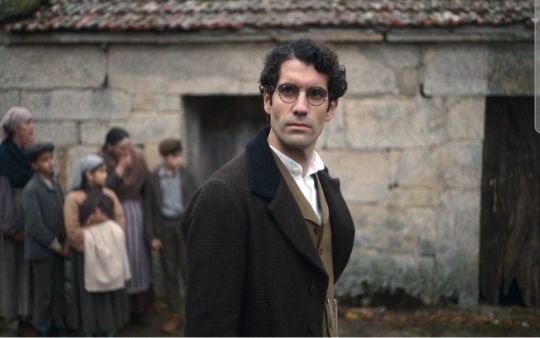

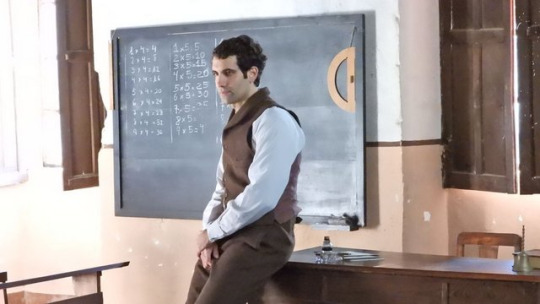

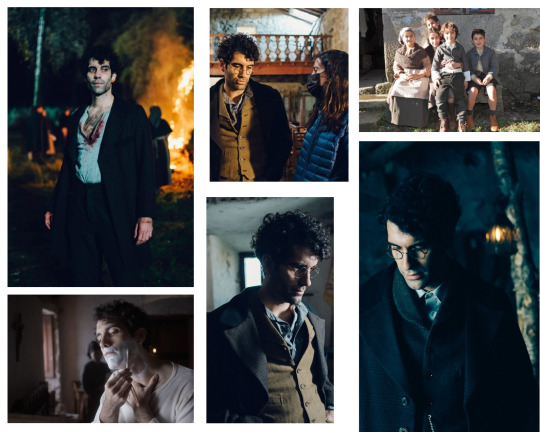

@asongofstarkandtargaryen There's another interesting upcoming film, O corpo Aberto (The open body), it's an horror film set on Galicia at the beginning of the 20th century, starring Tamar Novas. The release on cinemas will be on December 9.
"Ninguen marcha nunca de todo" (No one ever leaves at all)
The enigmatic town imagined by Méndez Ferrín, included in the book Arraianos, is transferred to the big screen in this film debut. The filmmaker Ángeles Huerta, an Asturian living in Galicia, uses this history and this cross-border territory to explore the concept of the border in O corpo aberto, a film with the participation of RTVE, it was shot mainly in Galician and Portuguese language (who are considered as variants/dialects of the same language)
Commonly known as A Raia*, the border between Galicia and Portugal is a space in which diversity and identity merge. This is where the story of this movie takes place. "A Raia Seca is that magical space where not only national and linguistic identities are blurred, that uncertain border between Galicia and Portugal, but also where the borders between masculine and feminine or even between life and death are blurred", says the director in an interview with RTVE.es.
*A Raia or La Raya is the informal name by which the land border between Spain and Portugal is traditionally known. In a broader way, La Raia is also the geographical space, on both sides of the political border, in which the population shares the same historical, cultural, economic and sometimes even linguistic elements.
La Raya (The Streak) has a length of 1214 km. It is the longest border between two member states of the European Union and the fourth on the continent, after that of Norway with Sweden (1619 km) and those of Russia with Ukraine (1576 km) and with Finland (1340 km). From north to south, the Spanish provinces bordering Portugal are Pontevedra, Ourense, Zamora, Salamanca, Cáceres, Badajoz and Huelva. The Portuguese districts bordering Spain are, from north to south, Viana do Castelo, Braga, Vila Real, Braganza, Guarda, Castelo Branco, Portalegre, Évora, Beja and Faro.
The history of La Raya begins at the time when Portugal was born as an independent kingdom in 1143, after the Treaty of Zamora, becoming independent from the Kingdom of León. The current layout of La Raya was definitively established in the Lisbon Boundary Treaty in 1926.
In the Galician-Portuguese part of the border, it is common to distinguish between the hydrographic border and the one drawn on land. Thus, A Raia Húmida (the wet streak) coincides with the course of the Miño river in the province of Pontevedra (Baixo Miño, O Condado and A Paradanta), while A Raia Seca (the dry streak) corresponds to the south of the province of Ourense (Terra de Celanova, Baixa and Alta Limia, valley from Monterrei and As Frieiras)
Synopsis
Terror and rural drama come together in this story. We are in 1909. Miguel (Tamar Novas), a young teacher, is assigned to a small mountain town on the border between Galicia and Portugal: Lobosandaus, an inhospitable village with ancestral traditions. He is a man of reason, but he cannot control his passionate desires and, as winter approaches, he feels darkness take over everything around him while his fascination with the enigmatic Dorinda (Victoria Guerra) grows.
Dorinda had an affair with Mauro (José Fidalgo), and he is found dead hanging from a cherry blossom tree and his spirit is freed, in search of a body that allows him to continue with his existence, which will lead Miguel to question the limits between the world of the living and the world of the dead.
Cast
The actor from Santiago de Compostela, Tamar Novas, leads the Galician-Portuguese cast in this folk horror story. He plays Miguel, a rookie teacher from the capital, whose first destination is a small mountain town. He is so scientifically and rationally minded that he finds it hard to understand why the neighborhood believes that the spirits of the dead can remain among the living by possessing other bodies. He confesses that he is surprised by the richness of the film: "I went to see images of what we are doing and everything is very attractive, the space, the characters, the worlds that are alluded to, the rhythm of the film I think is to sit down and travel".
María Vázquez, from Vigo, plays Obdulia, a bedridden neighbor who, due to being ill, becomes an "open body" when she is possessed by the spirit of a Portuguese capador, Mauro. For her, the difficulty of the film was having to play a female character who, after being inhabited by the spirit of a deceased man, begins to behave like him.
Victoria Guerra, from Faro, Portugal, is the female lead of the film. She plays Dorinda, the fascinating married woman with whom the teacher falls in love and who is seduced by the character of María Vázquez. She confesses that she loves how the director approached female sexuality at the beginning of the 20th century and the closeness of the Galician and Portuguese cultures.
The cast is completed by José Fidalgo as Mauro, Elena Seijo as Aparecida, Federico Pérez as Turelo, Nicolás Otero as Clamores, Izaín González as Martín and Miquel Insua as Don Fernando.
Director: Ángeles Huerta
SCRIPT: Ángeles Huerta, Daniel D. García
PHOTOGRAPH: Gina ferrer
MONTAGE: Sandra Sanchez
SOUND: Jordi Rossinyol Colomer
MUSIC: Mercedes León- Song: "Do outro lado" (From the other side)
PRODUCTION: Gaspar Broullón, Ana Costa, Adrià Monés
PRODUCER: Fasten Films, OlloVivo Productions, Cinemate
DURATION: 91 min.
The trailer has alredy been released, probably during the following days I will make some post about it.
#o corpo aberto#the open body#films#tamar novas#victoria guerra#maría vázquez#josé fidalgo#elena seijo#federico pérez#nicolás otero#izaín gonzález#miquel insua#pics#upcoming film
12 notes
·
View notes
Note
“You don’t think it’s strange that a king would rather visit EU countries than those he is Monarch of in the Commonwealth? All I see is a WEF puppet on the throne”
@sallysmith
It’s as pertinent that both Boris and Liz were nationalist pro UK PM’s whereas both Sunak and Starmer are Supranationalists. Remember Starmer said he preferred Davos to Westminster.
The monarchy isn’t independent from the government of the day and their choices as regards foreign visits and state visits etc are all determined by the FCDO.
Our late Majesty was lucky that for the greater portion of her rule her governments, whether Tory or Labour, prioritised and fought for the country.
Heath may have taken us into the EEC but it was the Maastricht and Lisbon treaties that subjugated us to supranational organisations. 🇬🇧
rishi sunak snaked his way into becoming prime minister
2. keir starmer is an absolute bellend
3. the electorate were robbed of the people they actually voted for ie boris and liz
and yes, politically we are not the same as we were 20, 30, 50 years ago, never mind 70. nor will we ever go back to those times. we cannot compare those times to those of today. it's been 6 months, it's time charles was given some grace to become the king he is without living in the shadow of his mother or being held to the expectations we had of her, never mind slapped with preconceived notions or ideals
6 notes
·
View notes
Text
The Spanish Armada
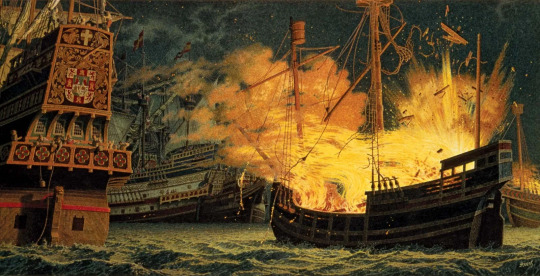
The Spanish Armada was an enormous 130-ship naval fleet dispatched by Spain in 1588 as part of a planned invasion of England. Following years of hostilities between Spain and England, King Philip II of Spain assembled the flotilla in the hope of removing Protestant Queen Elizabeth I from the throne and restoring the Roman Catholic faith in England. Spain’s “Invincible Armada” set sail that May, but it was outfoxed by the English, then battered by storms while limping back to Spain with at least a third of its ships sunk or damaged. The defeat of the Spanish Armada led to a surge of national pride in England and was one of the most significant chapters of the Anglo-Spanish War.
King Philip II’s decision to attempt an overthrow of Queen Elizabeth I was several years in the making. Despite their family connections—Philip had once been married to Elizabeth’s half-sister, Mary—the two royals had severe political and religious differences and had engaged in a “cold war” for much of the 1560s and 1570s. Philip was particularly incensed by the spread of Protestantism in England, and he had long toyed with the idea of conquering the British Isle to bring it back into the Catholic fold. Tensions between Spain and England flared in the 1580s, after Elizabeth began allowing privateers such as Sir Francis Drake to conduct pirate raids on Spanish fleets carrying treasure from their rich New World colonies. By 1585, when England signed a treaty of support with Dutch rebels in the Spanish-controlled Netherlands, a state of undeclared war existed between the two powers. That same year, Philip began formulating an “Enterprise of England” to remove Elizabeth from the throne.
The Spanish Armada was a naval force of about 130 ships, plus some 8,000 seamen and an estimated 18,000 soldiers manning thousands of guns. Roughly 40 of the ships were warships. The Spanish plan called for this “Great and Most Fortunate Navy” to sail from Lisbon, Portugal, to Flanders, where it would rendezvous with 30,000 crack troops led by the Duke of Parma, the governor of the Spanish Netherlands. The fleet would then guard the army as it was ferried across the English Channel to the Kent coast to begin an overland offensive against London. It was impossible for Spain to hide the preparations for a fleet as large as the Armada, and by 1587, Elizabeth’s spies and military advisors knew an invasion was in the works. That April, the Queen authorized Francis Drake to make a preemptive strike against the Spanish. After sailing from Plymouth with a small fleet, Drake launched a surprise raid on the Spanish port of Cadiz and destroyed several dozen of the Armada’s ships and over 10,000 tons of supplies. The “singeing of the king of Spain’s beard,” as Drake’s attack was known in England, was later credited with delaying the launch of the Armada by several months. The English used the time bought by the raid on Cadiz to shore up their defenses and prepare for invasion. Elizabeth’s forces built trenches and earthworks on the most likely invasion beaches, strung a giant metal chain across the Thames estuary and raised an army of militiamen. They also readied an early warning system consisting of dozens of coastal beacons that would light fires to signal the approach of the Spanish fleet.
Led by Drake and Lord Charles Howard, the Royal Navy assembled a fleet of some 40 warships and several dozen armed merchant vessels. Unlike the Spanish Armada, which planned to rely primarily on boarding and close-quarters fighting to win battles at sea, the English flotilla was heavily armed with long-range naval guns. In May 1588, after several years of preparation, the Spanish Armada set sail from Lisbon under the command of the Duke of Medina-Sidonia. When the 130-ship fleet was sighted off the English coast later that July, Howard and Drake raced to confront it with a force of 100 English vessels. The English fleet and the Spanish Armada met for the first time on July 31, 1588, off the coast of Plymouth. Relying on the skill of their gunners, Howard and Drake kept their distance and tried to bombard the Spanish flotilla with their heavy naval cannons. While they succeeded in damaging some of the Spanish ships, they were unable to penetrate the Armada’s half-moon defensive formation.
Over the next several days, the English continued to harass the Spanish Armada as it charged toward the English Channel. The two sides squared off in a pair of naval duels near the coasts of Portland Bill and the Isle of Wight, but both battles ended in stalemates. By August 6, the Armada had successfully dropped anchor at Calais Roads on the coast of France, where Medina-Sidonia hoped to rendezvous with the Duke of Parma’s invasion army. Desperate to prevent the Spanish from uniting their forces, Howard and Drake devised a last-ditch plan to scatter the Armada. At midnight on August 8, the English set eight empty vessels ablaze and allowed the wind and tide to carry them toward the Spanish fleet hunkered at Calais Roads. The sudden arrival of the fireships caused a wave of panic to descend over the Armada. Several vessels cut their anchors to avoid catching fire, and the entire fleet was forced to flee to the open sea. With the Armada out of formation, the English initiated a naval offensive at dawn on August 8. In what became known as the Battle of Graveline's, the Royal Navy inched perilously close to the Spanish fleet and unleashed repeated salvos of cannon fire. Several of the Armada’s ships were damaged and at least four were destroyed during the nine-hour engagement, but despite having the upper hand, Howard and Drake were forced to prematurely call off the attack due to dwindling supplies of shot and powder.
With the Spanish Armada threatening invasion at any moment, English troops gathered near the coast at Tilbury in Essex to ward off a land attack. Queen Elizabeth herself was in attendance and - dressed in military regalia and a white velvet gown - she gave a rousing speech to her troops, one that is often cited as among the most inspiring speeches ever written and delivered by a sovereign leader: "I know I have the body of a weak, feeble woman; but I have the heart and stomach of a king, and of a king of England too, and think foul scorn that Parma or Spain, or any prince of Europe, should dare to invade the borders of my realm; to which rather than any dishonor shall grow by me, I myself will take up arms, I myself will be your general, judge and rewarder of every one of your virtues in the field." Shortly after the Battle of Graveline's, a strong wind carried the Armada into the North Sea, dashing the Spaniards’ hopes of linking up with the Duke of Parma’s army. With supplies running low and disease beginning to spread through his fleet, the Duke of Medina-Sidonia resolved to abandon the invasion mission and return to Spain by rounding Scotland and Ireland. The Spanish Armada had lost over 2,000 men during its naval engagements with the English, but its journey home proved to be far more deadly. The once-mighty flotilla was ravaged by sea storms as it rounded Scotland and the western coast of Ireland. Several ships sank in the squalls, while others ran aground or broke apart after being thrown against the shore.
By the time the “Great and Most Fortunate Navy” finally reached Spain in the autumn of 1588, it had lost as many as 60 of its 130 ships and suffered some 15,000 deaths. The vast majority of the Spanish Armada’s losses were caused by disease and foul weather, but its defeat was nevertheless a triumphant military victory for England. By fending off the Spanish fleet, the island nation saved itself from invasion and won recognition as one of Europe’s most fearsome sea powers. The clash also established the superiority of heavy cannons in naval combat, signaling the dawn of a new era in warfare at sea. While the Spanish Armada is now remembered as one of history’s great military blunders, it didn’t mark the end of the conflict between England and Spain. In 1589, Queen Elizabeth launched a failed “English Armada” against Spain.
King Philip II, meanwhile, later rebuilt his fleet and dispatched two more Spanish Armadas in the 1590s, both of which were scattered by storms. It wasn’t until 1604—over 16 years after the original Spanish Armada set sail—that a peace treaty was finally signed ending the Anglo-Spanish War as a stalemate.
3 notes
·
View notes
Text
Events 3.9
141 BC – Liu Che, posthumously known as Emperor Wu of Han, assumes the throne over the Han dynasty of China.
1009 – First known mention of Lithuania, in the annals of the monastery of Quedlinburg.
1226 – Khwarazmian sultan Jalal ad-Din conquers the Georgian capital of Tbilisi.
1230 – Bulgarian Tsar Ivan Asen II defeats Theodore of Epirus in the Battle of Klokotnitsa.
1500 – The fleet of Pedro Álvares Cabral leaves Lisbon for the Indies. The fleet will discover Brazil which lies within boundaries granted to Portugal in the Treaty of Tordesillas in 1494.
1701 – Safavid troops retreat from Basra, ending a three-year occupation.
1765 – After a campaign by the writer Voltaire, judges in Paris posthumously exonerate Jean Calas of murdering his son. Calas had been tortured and executed in 1762 on the charge, though his son may have actually died by suicide.
1776 – The Wealth of Nations by Scottish economist and philosopher Adam Smith is published.
1796 – Napoléon Bonaparte marries his first wife, Joséphine de Beauharnais.
1811 – Paraguayan forces defeat Manuel Belgrano at the Battle of Tacuarí.
1815 – Francis Ronalds describes the first battery-operated clock in the Philosophical Magazine.
1841 – The U.S. Supreme Court rules in the United States v. The Amistad case that captive Africans who had seized control of the ship carrying them had been taken into slavery illegally.
1842 – Giuseppe Verdi's third opera, Nabucco, receives its première performance in Milan; its success establishes Verdi as one of Italy's foremost opera composers.
1842 – The first documented discovery of gold in California occurs at Rancho San Francisco, six years before the California Gold Rush.
1847 – Mexican–American War: The first large-scale amphibious assault in U.S. history is launched in the Siege of Veracruz.
1862 – American Civil War: USS Monitor and CSS Virginia (rebuilt from the engines and lower hull of the USS Merrimack) fight to a draw in the Battle of Hampton Roads, the first battle between two ironclad warships.
1908 – Inter Milan was founded on Football Club Internazionale, following a schism from A.C. Milan.
1916 – Mexican Revolution: Pancho Villa leads nearly 500 Mexican raiders in an attack against the border town of Columbus, New Mexico.
1933 – Great Depression: President Franklin D. Roosevelt submits the Emergency Banking Act to Congress, the first of his New Deal policies.
1942 – World War II: Dutch East Indies unconditionally surrendered to the Japanese forces in Kalijati, Subang, West Java, and the Japanese completed their Dutch East Indies campaign.
1944 – World War II: Soviet Army planes attack Tallinn, Estonia.
1945 – World War II: A coup d'état by Japanese forces in French Indochina removes the French from power.
1945 – World War II: Allied forces carry out firebombing over Tokyo, destroying most of the capital and killing over 100,000 civilians.
1946 – Bolton Wanderers stadium disaster at Burnden Park, Bolton, England, kills 33 and injures hundreds more.
1954 – McCarthyism: CBS television broadcasts the See It Now episode, "A Report on Senator Joseph McCarthy", produced by Fred Friendly.
1956 – Soviet forces suppress mass demonstrations in the Georgian SSR, reacting to Nikita Khrushchev's de-Stalinization policy.
1957 – The 8.6 Mw Andreanof Islands earthquake shakes the Aleutian Islands, causing over $5 million in damage from ground movement and a destructive tsunami.
1959 – The Barbie doll makes its debut at the American International Toy Fair in New York.
1960 – Dr. Belding Hibbard Scribner implants for the first time a shunt he invented into a patient, which allows the patient to receive hemodialysis on a regular basis.
1961 – Sputnik 9 successfully launches, carrying a dog and a human dummy, and demonstrating that the Soviet Union was ready to begin human spaceflight.
1967 – Trans World Airlines Flight 553 crashes in a field in Concord Township, Ohio following a mid-air collision with a Beechcraft Baron, killing 26 people.
1974 – The Mars 7 Flyby bus releases the descent module too early, missing Mars.
1976 – Forty-two people die in the Cavalese cable car disaster, the worst cable-car accident to date.
1977 – The Hanafi Siege: In a 39-hour standoff, armed Hanafi Muslims seize three Washington, D.C., buildings.
1978 – President Soeharto inaugurated Jagorawi Toll Road, the first toll highway in Indonesia, connecting Jakarta, Bogor and Ciawi, West Java.
1987 – Chrysler announces its acquisition of American Motors Corporation
1997 – Comet Hale–Bopp: Observers in China, Mongolia and eastern Siberia are treated to a rare double feature as an eclipse permits Hale-Bopp to be seen during the day. As the comet made its closest approach to Earth on March 26, all 39 active members of the Heaven's Gate cult committed ritual mass suicide over a period of three days, in the belief that their spirits would be teleported into an alien spacecraft flying inside the comet's tail.
1997 – The Notorious B.I.G. is murdered in Los Angeles after attending the Soul Train Music Awards. He is gunned down leaving an after party at the Petersen Automotive Museum. His murder remains unsolved.
2011 – Space Shuttle Discovery makes its final landing after 39 flights.
2012 – A truce between the Salvadoran government and gangs in the country goes into effect when 30 gang leaders are transferred to lower security prisons.
1 note
·
View note
Text
Frigate "Pallada" by Alexey Bogolubov
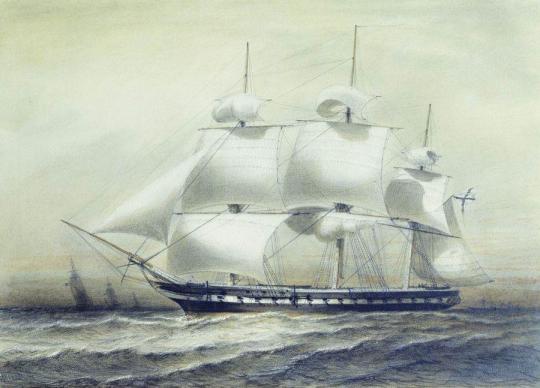
Pallada (Russian: Паллада) was a sail frigate of the Imperial Russian Navy, most noted for its service as flagship of Vice Admiral Yevfimy Putyatin during his visit to Japan in 1853, which later resulted in the signing of the Treaty of Shimoda of 1855, establishing formal relations between the two countries. In addition to her diplomatic mission, her crew also conducted numerous geographical and natural studies in the Far East. She was scuttled by her own crew in the Crimean War due to the poor condition of her hull in 1855.
Pallada was built at the Admiralty Shipyard in St Petersburg, with her hull design based on the British frigate HMS President (1829), which in turn was based after an American frigate, President which had been captured as a prize of war by the Royal Navy during the War of 1812. The ship was intended from the start for use by members of the Russian imperial family on diplomatic missions, and Tsar Nicholas I issued an imperial rescript commanding that the vessel incorporate all of the latest innovations. After launching, she was based at Kronstadt with the Baltic Fleet and was assigned to the command of Captain Pavel Nakhimov, one of the ablest commanders in the Russian Navy. She entered active service in early August 1833.
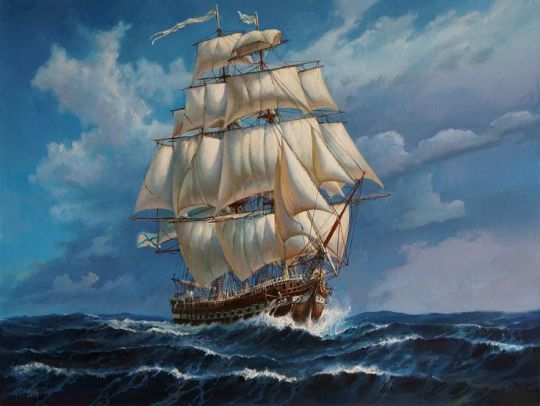
Frigate Pallada by Constantin Cherepanov
Pallada was a three-masted frigate of wooden construction, with a transverse steel reinforcement skeleton in her hull. It was sheathed in copper sheets, to prevent destruction of the wood by marine organisms. A novelty on the Russian ships at the time was the use of portholes for lighting crew spaces on the lower deck.
In 1834, Pallada transported the future Frederick William IV of Prussia on a state visit to Russia. From 1835-1836 she served in various ports in the Baltic and in 1837 was tasked with carrying gold bullion to London on a special mission for the Russian embassy. She served until 1846 as a training ship for cadets. She underwent a complete overhaul from 1846–48, and afterwards was assigned to the Mediterranean, calling on Madeira and Lisbon in 1849 and was frequently the flagship for Grand Duke Konstantin Nikolayevich of Russia.
#art#sea#age of sail#history#world history#russian fleet#naval art#ships#sailing#japanese fleet#ship painting
3 notes
·
View notes
Text

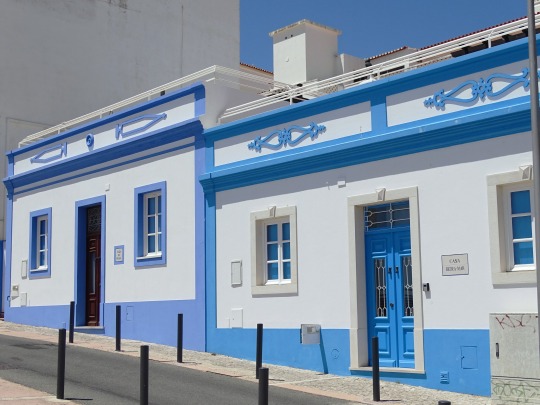

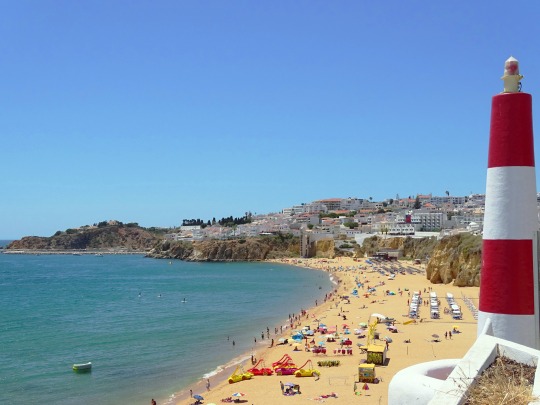
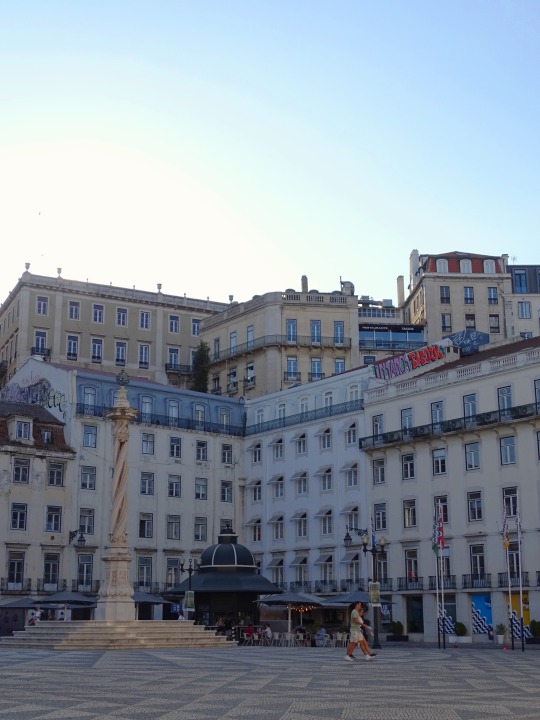

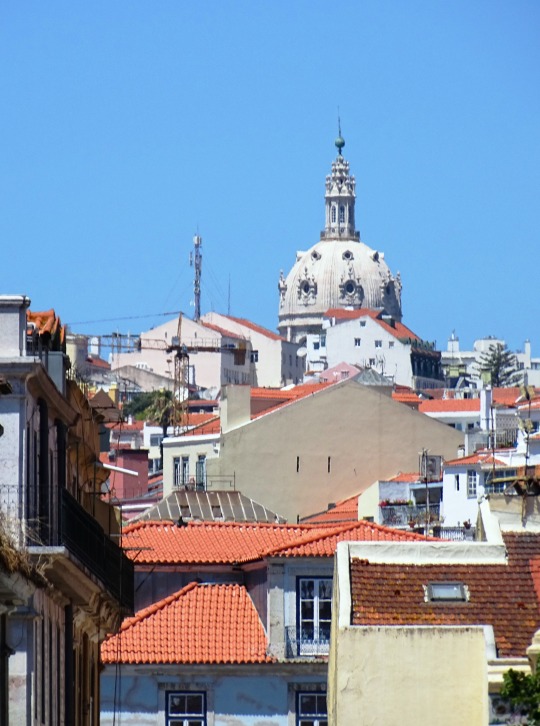





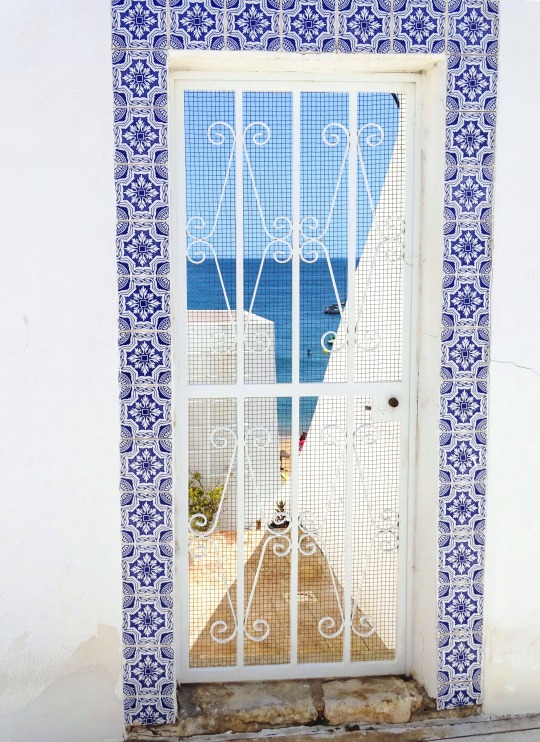

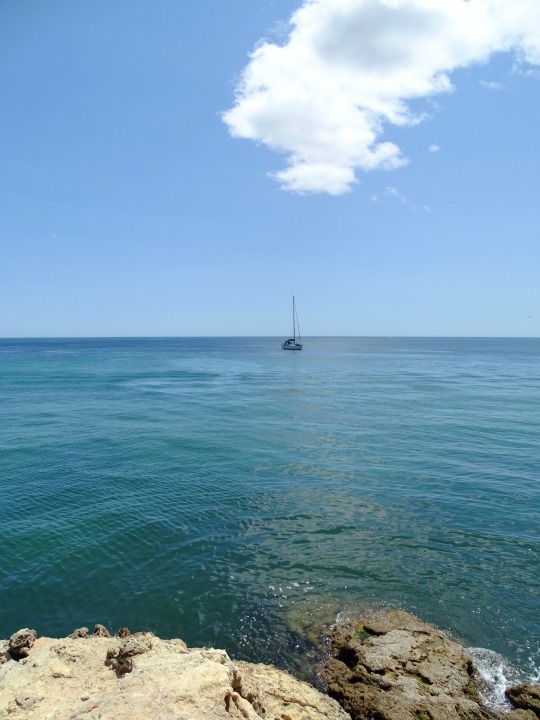



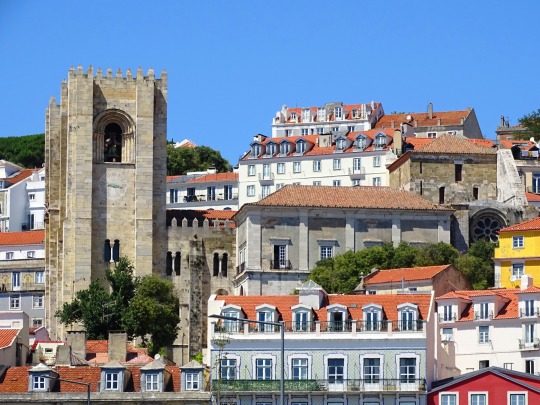
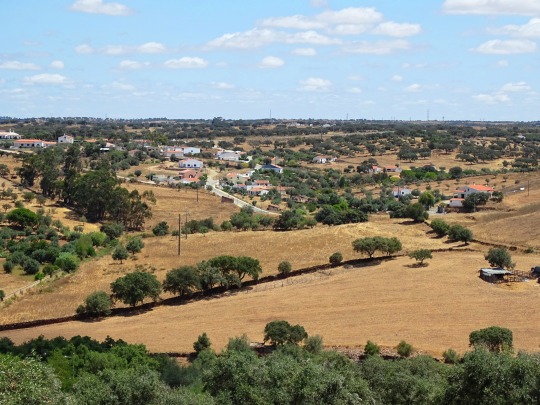




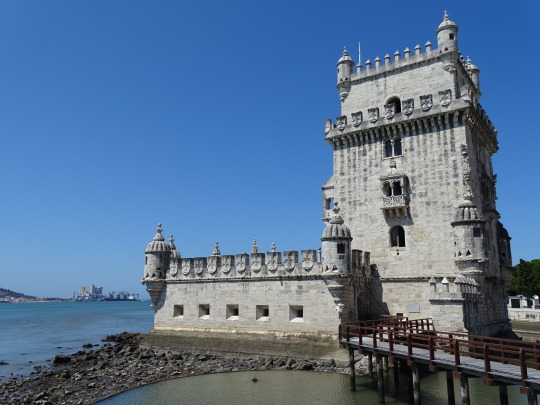
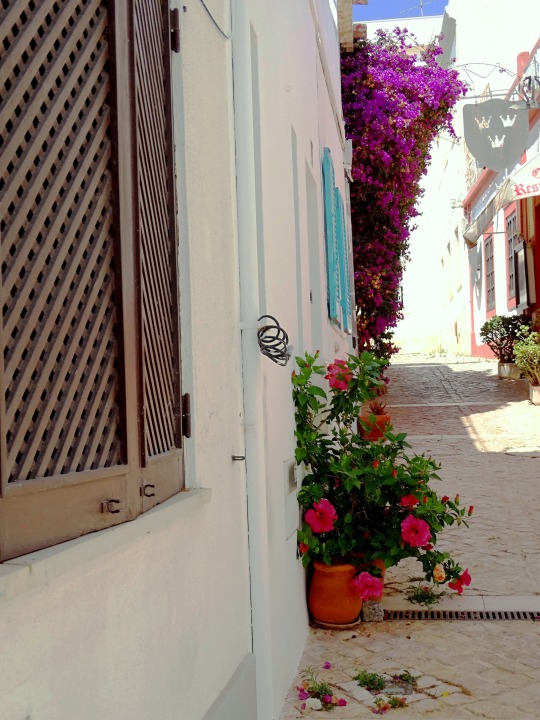
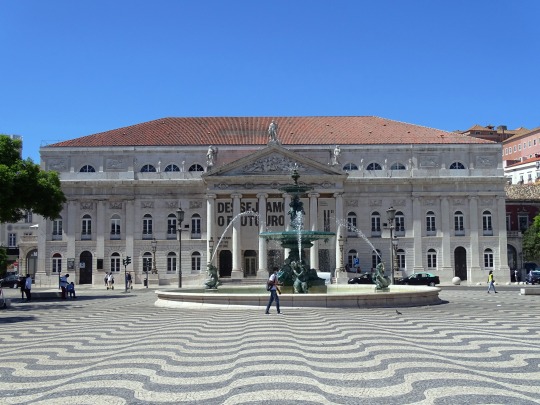
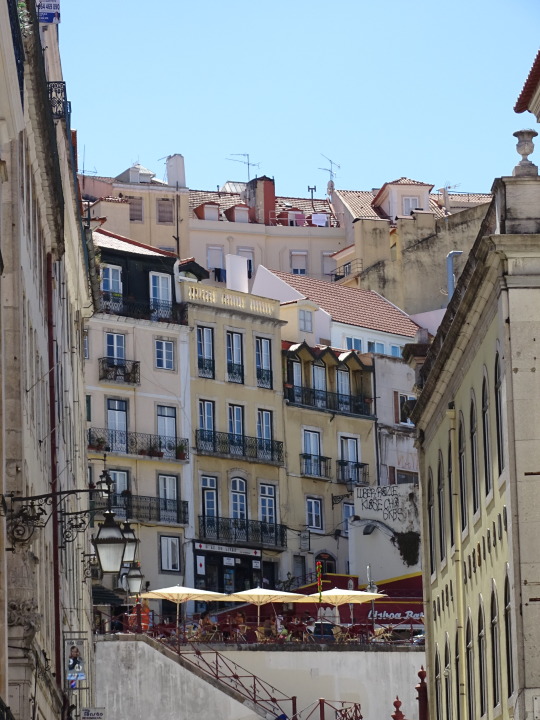


The Treaty of Lisbon of 1668 was a peace treaty between Portugal and Spain that was concluded at Lisbon on 13 February 1668 with the mediation of England in which Spain recognised the sovereignty of Portugal’s new ruling dynasty, the House of Braganza and the independence of Portugal.
#Treaty of Lisbon of 1668#peace treaty#Portugal#Spain#sovereignty#travel#13 February 1668#355th anniversary#River Tagus#Lisbon#Lisboa#vacation#architecture#cityscape#original photography#summer 2022#Albufeira#Atlantic Ocean#seascape#landscape#Belém Tower#Ourique#Praça do Comércio#São Jorge Castle#tourist attraction#landmark
2 notes
·
View notes
Text
Portugal Citizenship By Investment
Smart Moves: The Advantages of Pursuing Portugal Citizenship by Investment
In an era where global mobility and diversification of assets are becoming increasingly important, Portugal Citizenship by Investment program stands out as a smart and advantageous option for individuals seeking a second citizenship.
With its attractive benefits and strategic location within the European Union, Portugal offers a pathway to citizenship that opens doors to a myriad of opportunities.
Let's delve into the advantages of pursuing Portugal citizenship through investment.
dailymotion
Access to the European Union
One of the primary benefits of obtaining Portuguese citizenship through investment is the access it grants to the European Union (EU).
As an EU member state, Portugal offers citizens the right to live, work, and study in any of the 27 EU countries, providing unparalleled freedom of movement within the Schengen Area.
This advantage enhances personal and professional opportunities and also offers access to high-quality healthcare, education, and social welfare systems.
Visa-Free Travel
Portuguese citizenship opens doors to visa-free or visa-on-arrival travel to over 180 countries worldwide, including the United States, Canada, and the United Kingdom.
This level of global mobility is particularly advantageous for business professionals, investors, and frequent travellers who require hassle-free access to international destinations for work, leisure, or family purposes.
When you get a Passport by investment Portugal you can navigate global travel with ease and flexibility.

Stable Political Environment and Quality of Life
Portugal boasts a stable political environment, making it an attractive destination for individuals seeking security and stability for themselves and their families.
With a rich cultural heritage, stunning landscapes, and a mild Mediterranean climate, Portugal offers an exceptional quality of life that appeals to expatriates globally.
From vibrant cities like Lisbon and Porto to picturesque coastal towns and countryside retreats, Portugal offers diverse lifestyle options to suit varying preferences and interests.
Favorable Tax Regime
Portugal offers a favourable tax regime for residents, including non-habitual residents (NHR), who may benefit from significant tax advantages, including exemptions and reduced rates on foreign-sourced income, pensions, and capital gains.
This advantageous tax regime, with Portugal's network of double taxation treaties, makes it an attractive destination for individuals seeking to optimize their tax liabilities and preserve their wealth.
Family Reunification
Portuguese citizenship by investment extends benefits to the investor's family members, including spouses, children, and dependent parents.
This provision enables families to reunite and enjoy the advantages of Portuguese citizenship together, fostering a sense of security, belonging, and shared opportunities.
Whether relocating for education, employment, or lifestyle reasons, Portugal offers a welcoming environment for families seeking a better future.
In conclusion:
Pursuing Portugal citizenship by investment presents various advantages for individuals seeking to enhance their global mobility, secure their financial future, and improve their quality of life.
With its access to the European Union, visa-free travel privileges, stable political environment, favourable tax regime, and provisions for family reunification, Portugal stands as a strategic and attractive destination for investors and families alike.
Get your Portugal investment visa through Portugal's Citizenship by Investment Program unlock a world of opportunities and embark on a journey towards a brighter future.
To know more about this program, visit Mercan Funds and explore how they can help you get started on your journey towards Portuguese citizenship through investment!
#Portugal golden visa#Portugal golden visa 2024#Portugal residence by investment#Portugal visa golden#Property investment in Portugal#SoundCloud
0 notes
Text
Does the European Union have the resources to match its ambitions?
Fifteen years have passed since the last update of a European Union treaty.
Signed in 2007 and into force since 2009, the Treaty of Lisbon clarified the division of competences between the EU and its member states, gave the EU its own legal personality and provided for the first time a formal procedure for the withdrawal of a member state from the Union.
Since then, enlargement has been one of…
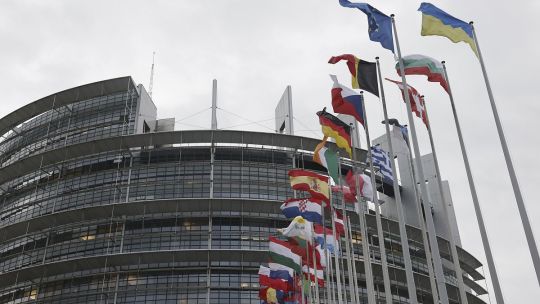
View On WordPress
0 notes
Note
Got a list of books on Port for any of us anon's who enjoy physical books to order online or from a bookstore?
Oh, man, I do most of my research online these days :(
But I'll point you to some tips that might help you!
What you can do is go to a bookstore and see what they have. They'll probably have a broad, mostly washed up, version of Portuguese history, but that will serve as your base and you can build on top of that.
It's important to get multiple sides and what's wonderful about studying Portuguese history is that you'll find a little something about them pretty much everywhere in the world. If you read it from a Portuguese author, specially if it's an older pre-Revolution book, you'll often find it to be a little too patriotic, and if you read it from a British author, you'll often find it to be a little too patronizing. So take both with a grain of salt.
I recommend you touch the following periods: Roman colonization, Islamic conquest, Independence and reconquista, Age of Discovery, Iberian Union, the Portuguese Inquisition (especially in India), Independence from Spain, the discovery of gold in Brazil, the 1703 Treaty of Cloth and Wine with England, the 1755 Lisbon Earthquake, the Seven Years War, the Napoleonic Wars (both the escape of the royal family to Brazil and the resistance in Portugal), Beresford in Portugal, Brazilian Independence, the Liberal Wars, the reign of D. Maria II, the Berlin Conference and the partition of Africa, the Pink Map and the British Ultimatum, the assassination of D. Carlos I, the fall of the Portuguese monarchy, Portugal's participation in WWI, Salazar, Portugal's participation in WWII, the Colonial Wars, the Carnation Revolution and the independence of Timor Leste.
(it's a big list I know, but you don't have to get a book that has all of that, you can get one that gives you a broader picture and then search for more information individually)
Other topics I found to be really interesting during research:
Portugal's trade in the Golf of Guinea and trade with the Kingdom of Benin;
Portugal's relation with the Kingdom of Kongo;
The volta do mar;
Luso-Japanese relations, in special the fallout;
Sino-Portuguese relations, in special the awkward beginning and the lease of Macau;
British presence in Macau and Portuguese presence in Hong Kong;
Swedish-Portuguese salt trade in the 17th century (Portugal's salt trade in general is a very interesting read);
The Ottoman-Portuguese War in the Indies;
Portugal conquest of Malacca and the Indies.
And if you have the will and the time, I strongly recommend you read the literature. Gil Vicente, Eça de Queiroz, Saramago, you're in for a treat!
#and if you ever want digital links to research articles hit me up!#you'll also find a lot of them in the notes for 'In this universal river'#It's a lot fo work but it's also very cool#and to me as a Brazilian very enlightening too#asks
4 notes
·
View notes
Text
vice paying tribute to virtue
The western ruling class and its subservient mass media of communications take an ironic look at the Russian presidential elections illustrated by outrageous tone of the Belgian Charles Michel, president of the European Council who already “congratulated” Vladimir Putin for his landslide victory. That is to say that presidential elections in Russia are rigged while in the west, the elections are free and indisputable as the voters freely chose their president and their representatives. It is not in this chat one can refute the idea that western democracy is a full, real and genuine democracy, suffice to take some examples to show that it is not true that western political system is a democracy but as Aldous Huxley called a “prefect dictatorship”. First example, in the pure nazi tradition, Kiev nazi regime has already eliminated and exterminated opposition parties, socialist and communist representatives in the Rada were murdered or exiled in Russia and elsewhere. Second example, in the so called “American democracy”, the choice is not between republican or democratic candidates, but the choice between two candidates selected by the political establishment, the US big business and partisans of US imperialism. Third example, in France, the French people rejected by referendum on May 2005 the European constitutional project establishing and strengthening Brussels dictatorship but two years later, former president Sarkozy has squashed the popular vote, went to Lisbon in order to establish anyway the European treaty that governs today the European Union. Along the French voters, the Dutch and Irish voters rejected by referendum the current European treaty too.
0 notes
Text
Day 2: Beatrice of Castile
Beatrice of Castile (also spelled Beatriz)
Born: 1293
Died: 25 October 1359
Parents: Sancho IV and María de Molina
Infanta of Castile
Queen of Portugal as the wife of Afonso IV ( 7 January 1325 – 28 May 1357)
Children: Maria (1313 – 18 January 1357) - the wife of Alfonso XI of Castile and mother of the future king Peter I of Castile.
Alfonso (1315– 1317)
Denis (born 12 February 1317) - died a few months after his birth
Peter (8 April 1320 – 18 January 1367) - King of Portugal
Isabel (21 December 1324 – 11 July 1326)
John (23 September 1326 – 21 June 1327)
Eleanor (1328 – 1348) - the wife of Peter IV of Aragon
She was born in Toro, Kingdom of Castile.
On 13 September 1297, the Treaty of Alcañices was signed by her mother, regent at the time, and the King of Portugal. The treaty included marriage clauses to reinforce the peace.
The four year old Beatrice abandoned Castile the same year to move to the Portuguese court where she was raised alongside her future spouse , Infante Afonso, who was 2 years her senior. She was raised in a refined environment, courtesy of her future father-in-law King Denis of Portugal.
Upon her arrival, she was given multiple wedding tokens including properties by the king. After marriage the number of estates increased, her husband gifting her a great number before even ascending the throne. She received even more properties after her son became king.
Before the marriage could take place a papal dispensation was required.
The papal bull was issued in 1301 but the marriage was postponed until Beatrice and Alfonso were of age.
In 1309 the two were married, aged 16 and 18. The marriage was celebrated in Lisbon on 12 September 1309. The marriage was happy and successful, Alfonso did not have a single child out of wedlock. The couple had 7 children, 3 living past infancy.
She played an important role in the affairs of the kingdom, mediated numerous conflicts, founded a hospital and left numerous properties and sums to religious establishments.
She had 7 children, only 3 reaching adulthood.
Beatrice died aged 66 in Lisbon. She is buried in Lisbon Cathedral next to her husband.
#portuguese history#spanish history#women history#history#medieval history#14th century#1300s#13th century
0 notes